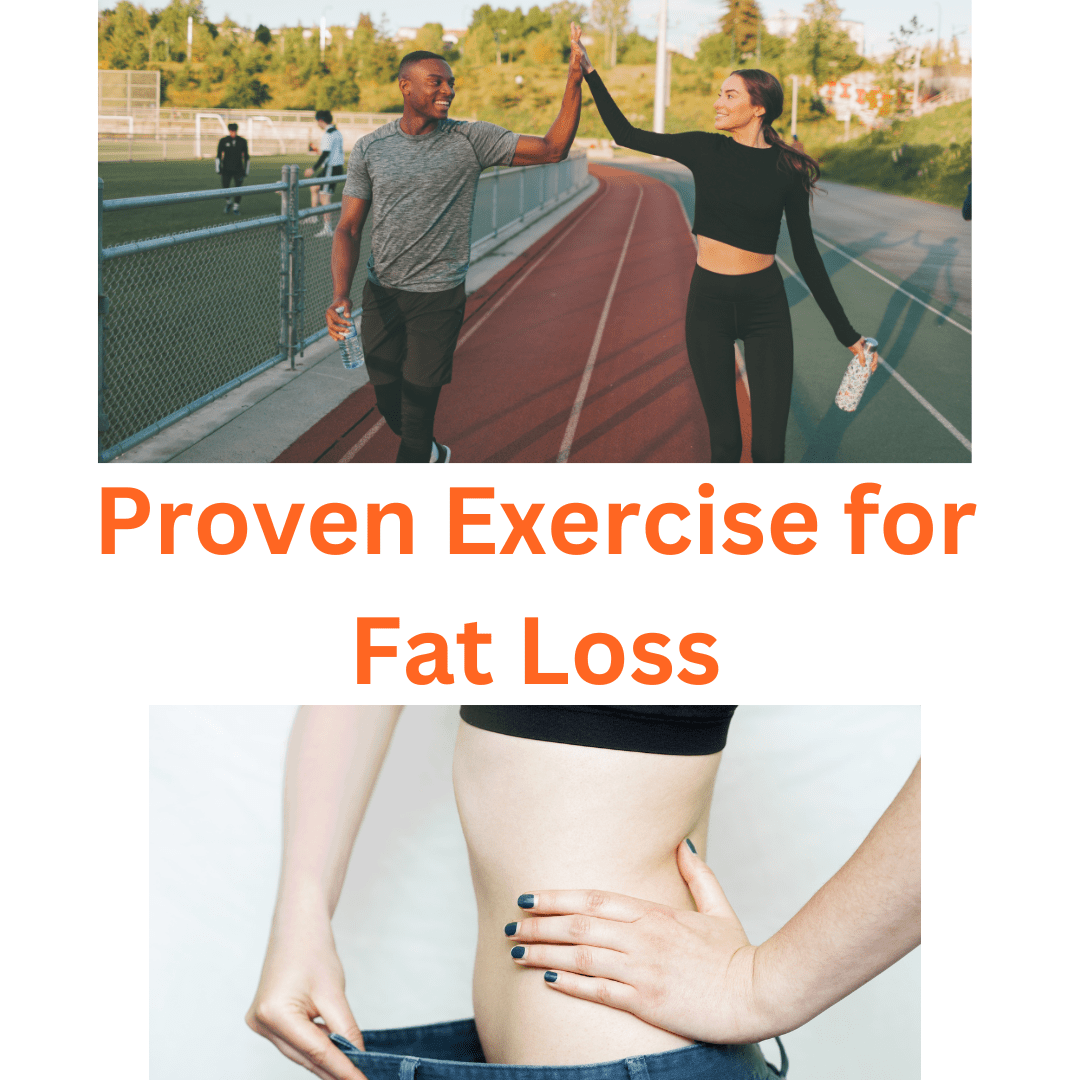
About The Benefits and Considerations of Exercise
Exercise is a crucial component of a healthy lifestyle, offering a wide range of benefits for people of all ages and fitness levels. From improved cardiovascular health to better mental wellbeing, there are countless reasons to make exercise a regular part of your routine. In this category, we cover the many benefits of exercise, as well as some important considerations to keep in mind as you embark on your fitness journey.
Benefits of Exercise
Let’s start by taking a closer look at some of the benefits of exercise. For adults, regular exercise has been shown to reduce the risk of chronic conditions such as heart disease, stroke, and diabetes. It can also improve mental health, including reducing the risk of depression and anxiety. For kids, exercise is essential for healthy growth and development, helping to build strong bones and muscles while reducing the risk of obesity.
1. Exercise can make you feel happier
Yes, you heard me right. Exercise can boost your mood and decrease feelings of depression, anxiety, and stress. How does it do that?
- Exercise produces changes in the parts of the brain that regulate stress and anxiety.
- It also increases the sensitivity of your brain to the hormones serotonin and norepinephrine, which are known to relieve feelings of depression.
- Additionally, exercise can increase the production of endorphins, which are chemicals that create positive feelings and reduce the perception of pain.
In fact, a 6 week study found that aerobic exercise decreased feelings of depression in 73% of people. Another study found that active people, particularly in women, who stopped exercising regularly experienced significant increases in symptoms of depression and anxiety after only a few weeks. So, exercise is the way to go if you want to feel happier and more relaxed.
2. Exercise can help you lose weight and maintain a healthy body composition.
This is one of the most apparent benefits of exercise, but it’s worth mentioning anyway.
- Exercise can help you burn calories and increase your metabolic rate, which means you can burn more calories even when you’re not exercising.
- Exercise can also help you preserve your muscle mass and strength, vital for keeping your metabolism high and preventing weight regain.
- Exercise can help you reduce belly fat, a harmful type of fat that surrounds your organs and increases your risk of chronic diseases like diabetes and heart disease.
One 2022 study found that aerobic exercise combined with resistance training was more effective than either type alone for reducing body fat. Another 2021 study found that high-intensity interval training (HIIT), which involves short bursts of intense exercise followed by recovery periods, was more effective than moderate-intensity continuous training (MICT) for reducing body fat and improving aerobic capacity in young men.
3. Exercise can improve your heart health and lower your risk of cardiovascular diseases.
Cardiovascular diseases are the leading cause of death worldwide, accounting for about 17.9 million deaths annually. Exercise can help prevent or manage these diseases by improving your blood circulation, lowering your blood pressure and cholesterol levels, strengthening your heart muscle, and preventing blood clots. According to a study in the Journal of Psychology, regular aerobic exercise can reduce your risk of heart disease by up to 50%. A meta-analysis of 305 randomized controlled trials involving 339,274 participants found that training was as effective as medication for preventing coronary heart disease and stroke death. Furthermore, a large cohort study involving 403,681 adults in Taiwan found that even low levels of physical activity (15 minutes per day) were associated with a lower risk of death from any cause and a lower risk of death from cardiovascular disease.
4. Exercise can enhance brain function and protect memory and thinking skills.
As you age, your brain tends to shrink and lose some cognitive abilities. Activity can counteract this process by stimulating the growth of new brain cells and blood vessels in the brain. Exercise can also improve communication between brain cells and increase brain-derived neurotrophic factor (BDNF) levels, a protein that supports brain health and learning. Several studies have shown that exercise can improve various aspects of cognition, such as attention, memory, executive function, processing speed, and creativity. For example, one study found that aerobic exercise improved cognitive performance in healthy older adults by increasing their brain volume in regions involved in memory and reasoning. Another study found that resistance training improved executive function and memory in older people with mild cognitive impairment.
5. Exercise can help you sleep better at night and feel more energized during the day.
Sleep is essential for your physical and mental health as it allows your body to repair itself and your brain to consolidate information. However, many people struggle with falling or staying asleep due to various factors such as stress, noise, light, or temperature. Exercise can help you overcome these challenges by regulating your circadian rhythm (your body’s natural clock), reducing stress hormones (such as cortisol), and improving body temperature regulation (which also promotes sleepiness).
The US Department of Health and Human Services has released evidence-based guidelines for physical activity, outlining the many benefits of exercise and recommending that adults aim for at least 150 minutes of moderate-intensity aerobic activity each week. These guidelines also highlight the importance of muscle-strengthening activities and offer specific recommendations for different age groups.
Why Cardio Matters
Cardiovascular exercise, or cardio for short, is a type of exercise that gets your heart pumping and your blood flowing. This type of exercise has been shown to have a wide range of benefits, from improving heart health to boosting mood and reducing stress. If you’re not already doing cardio, now is the time to start!
Metabolic Diseases
Exercise has also been shown to be effective in preventing and managing metabolic diseases such as type 2 diabetes. Regular physical activity can help improve insulin sensitivity and glucose regulation, reducing the risk of developing diabetes or helping to manage the condition in those who already have it.
Pregnancy and Exercise
Many women are concerned about exercising during pregnancy, but staying active can actually be very beneficial for both mom and baby. Regular exercise during pregnancy can help reduce the risk of gestational diabetes, improve mood and sleep, and even make labor and delivery easier.
Child Health from Fit Moms
When moms stay fit and active, they set a great example for their children and help promote healthy habits from a young age. Kids who grow up with active parents are more likely to be physically active themselves, reducing their risk of obesity and chronic disease.
Medications and Exercise
If you’re taking medications, it’s important to talk to your doctor about their potential impact on your exercise routine. Some medications can make it harder to exercise, while others may require you to adjust your workouts in order to avoid potential side effects.
Customizing Your Fitness Journey
Everyone’s fitness journey is unique, and it’s important to tailor your workouts to meet your individual needs and limitations. Whether you’re dealing with an injury or chronic condition, or just looking to improve your overall fitness level, there are many ways to customize your exercise routine and make it work for you.
Fitness Test Inaccuracy
Finally, it’s important to be aware of the potential for fitness test inaccuracy and take steps to mitigate these issues. Factors such as age, gender, and body composition can all impact the results of fitness tests, so it’s important to understand the limitations of these tests and work with a qualified trainer or healthcare professional to ensure accuracy. I also have many years of experience and expertise and freely share things to consider on this site. Additionally, follow me on social media to get lots of great value for free.
In conclusion, exercise offers a wide range of benefits for people of all ages and fitness levels. From reducing the risk of chronic disease to improving mental health and wellbeing, there are countless reasons to make exercise a regular part of your routine. By understanding the many benefits of exercise and tailoring your workouts to meet your unique needs and limitations, you can set yourself up for a lifetime of healthy habits and wellbeing.
References:
Herbert, C., Meixner, F., Wiebking, C., & Gilg, V. (2019). Regular Physical Activity, Short-Term Exercise, Mental Health, and Well-Being Among University Students: The Results of an Online and a Laboratory Study. Frontiers in Psychology, 11. https://doi.org/10.3389/fpsyg.2020.00509
Morgan, J. A., Olagunju, A. T., Corrigan, F., & Baune, B. T. (2018). Does ceasing exercise induce depressive symptoms? A systematic review of experimental trials including immunological and neurogenic markers. Journal of Affective Disorders, 234, 180-192. https://doi.org/10.1016/j.jad.2018.02.058
Lopez, P., Taaffe, D. R., Galvão, D. A., Newton, R. U., Nonemacher, E. R., Wendt, V. M., Bassanesi, R. N., P. Turella, D. J., & Rech, A. (2022). Resistance training effectiveness on body composition and body weight outcomes in individuals with overweight and obesity across the lifespan: A systematic review and meta‐analysis. Obesity Reviews, 23(5). https://doi.org/10.1111/obr.13428
Atakan, M. M., Li, Y., Koşar, Ş. N., Turnagöl, H. H., & Yan, X. (2021). Evidence-Based Effects of High-Intensity Interval Training on Exercise Capacity and Health: A Review with Historical Perspective. International Journal of Environmental Research and Public Health, 18(13). https://doi.org/10.3390/ijerph18137201
Naci, H., & A Ioannidis, J. P. (2015). Comparative effectiveness of exercise and drug interventions on mortality outcomes: Metaepidemiological study. British Journal of Sports Medicine, 49(21), 1414-1422. https://doi.org/10.1136/bjsports-2015-f5577rep
Joyner, M. J., & Green, D. J. (2009). Exercise protects the cardiovascular system: Effects beyond traditional risk factors. The Journal of Physiology, 587(Pt 23), 5551-5558. https://doi.org/10.1113/jphysiol.2009.179432
Wang, Y., Nie, J., Ferrari, G., Rey-Lopez, J. P., & M. Rezende, L. F. (2021). Association of Physical Activity Intensity With Mortality: A National Cohort Study of 403 681 US Adults. JAMA Internal Medicine, 181(2), 1-9. https://doi.org/10.1001/jamainternmed.2020.6331
Mandolesi, L., Polverino, A., Montuori, S., Foti, F., Ferraioli, G., Sorrentino, P., & Sorrentino, G. (2017). Effects of Physical Exercise on Cognitive Functioning and Wellbeing: Biological and Psychological Benefits. Frontiers in Psychology, 9. https://doi.org/10.3389/fpsyg.2018.00509
Quigley, A., MacKay-Lyons, M., & Eskes, G. (2019). Effects of Exercise on Cognitive Performance in Older Adults: A Narrative Review of the Evidence, Possible Biological Mechanisms, and Recommendations for Exercise Prescription. Journal of Aging Research, 2020. https://doi.org/10.1155/2020/1407896
Nagamatsu, L. S., Handy, T. C., Hsu, C. L., Voss, M., & Liu-Ambrose, T. (2012). Resistance training promotes cognitive and functional brain plasticity in seniors with probable mild cognitive impairment: A 6-month randomized controlled trial. Archives of internal medicine, 172(8), 666. https://doi.org/10.1001/archinternmed.2012.379









